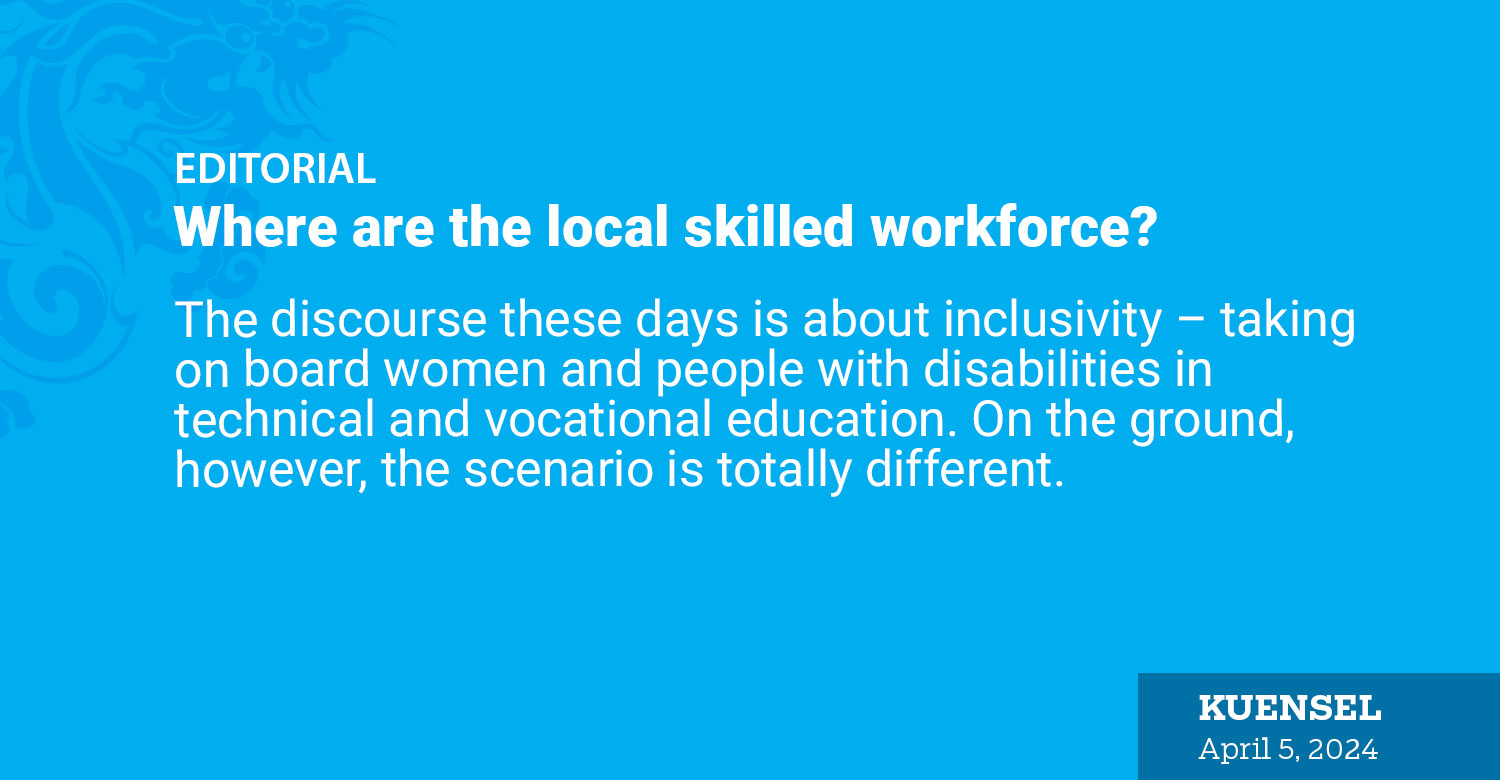The discourse these days is about inclusivity – taking on board women and people with disabilities in technical and vocational education. On the ground, however, the scenario is totally different.
The idea is great, at least on paper. However, decades after recognising technical and vocational education as a priority for skill-short Bhutan, equipping Bhutanese with skills still remains a challenge. The irony is that the government and decision makers have poured millions of ngultrum in skilling Bhutanese, particularly to replace the thousands of expatriate workers from across the border.
Did it work?
The answer is there if we ask the employers of automobile workshops, the contractor, the farmer-turned landlord forced to build houses for a livelihood or a company wanting to repair a building. The noble vision of equipping Bhutanese with skills to replace the masons, carpenters or the “tile masters” has failed.
This may be a bold statement, perhaps to the disappointment of those responsible for skilling Bhutanese youth, but those on the ground – contractors, builders and landlords – have the real answers. It is sad, but true, to say that after decades of investing in building a local skilled workforce, we have not achieved it.
Last week, labour officials inspected a construction site in Thimphu to see if they had employed Bhutanese. The owner of the private building had not. She cannot trust the Bhutanese TVET electrical graduate to take over the electrical works. The order from the authority was to “down pass” the Indian electrician so that the job is given to a Bhutanese.
Constructing a building involves millions of ngultrum. Builders need assurance for at least five years. The labour official, in advising the builder, assured a year’s guarantee. For an investment of millions of ngultrums, one year’s guarantee is not secure. Bhutanese builders trust expatriate workers because of the quality even if cost of labour is a factor.
What this indicates is clear. We were not able to skill our people to take over a lucrative job that is filled by workers from Dupguri or Falakata, our closest neigbour in West Bengal. Labour officials are adamant on implementing the provisions of the law. Are they aware of ground realities?
To get a good understanding of the ground realities, labour officials should go and inspect construction sites of our great leaders – prime ministers, cabinet ministers, policy makers, constitutional post holders, heads of corporations, members of parliament, state owned enterprises and so on. This could be a good learning ground of realities vis a vis paper policies.
While laws have to be respected, it would only work if there are alternatives. Cost may be a factor, but Bhutan desperately lacks a skilled labour force. A good example is hiring local workers during the Covid-19 pandemic that restricted entry of expatriate workers. Many are complaining about their workmanship.
After decades of planning and recognising the importance of building a skilled local workforce, everybody, including those implementing labour laws, are complaining about the same problem. Where are our local experts?


